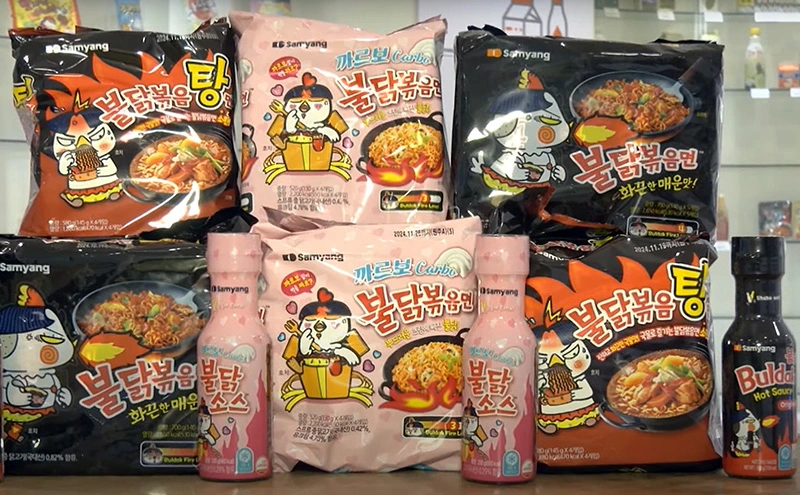Denmark celebrates the return of spicy freedom – lifting the ban on buldak fried noodles
The recent unbanning of buldak fried noodles in Denmark has garnered global attention. Buldak fried noodles, the iconic spicy Korean noodle, had been banned in Denmark for some time, and the recent lifting of the ban led to a huge celebration.
The incident was more than just a food recall, it had cultural, commercial, and community repercussions.
Background on the ban on fried chicken noodles in Denmark
In June, the Danish Food Safety Authority (DVFA) ordered a recall of some buldak fried noodles because they contained excessively high levels of capsaicin, which can be harmful to health.
Capsaicin is an ingredient that gives food its spicy flavor and can cause vomiting, high blood pressure, and nausea if consumed in excess.
The risk to children and vulnerable adults was particularly emphasized, and three variants of Buldak fried noodles were withdrawn from the market in Denmark.
Lifting the ban and its aftermath
After an in-depth investigation, the Danish authorities found that the two variants of fried fried chicken did not exceed the threshold and lifted the ban.
This allowed the product to return to the Danish market, and a special event was held in Copenhagen to celebrate.
In August, the ‘Buldak fried noodles ban lifting celebration party’ in Denmark’s capital Copenhagen was organized by Jung von Matt, a Berlin-based advertising firm, and Samyang Foods, and took place on a ferry decorated in red and black.
The event featured celebrity chefs and influencers cooking and sampling buldak fried noodles. Attendees celebrated the return of spicy freedom with fireworks on the ferry.
This brought great joy to spicy food lovers in Denmark and an unexpected marketing boost to Samyang Foods.
Denmark’s experience and the way forward
The Danish case has expanded beyond simple food safety issues into a discussion about cultural differences and consumer rights in a global marketplace.
The incident in Denmark taught Samyang Foods an important lesson about how to respond to consumer demand for spicy flavors in global markets.
It is likely that these spicy products will face similar issues in other countries in the future and will need to be addressed.
For Denmark, this incident has reminded us of the importance of consumers’ right to choose what they want and emphasized the need for companies to respect and reflect those consumer wishes.
Denmark’s experience with the lifting of the ban goes beyond buldak fried noodles and will remain a great example of cultural clash and harmony in the global food market.
In the future, Samyang Foods is expected to build on this experience and continue its efforts to meet diverse consumer demands.
Wrapping up
The ban on fried fried noodles in Denmark was more than just a food recall; it led to an important discussion about consumer choice and cultural diversity.
For Samyang Foods, this experience has given us the opportunity to further strengthen our global presence, and for consumers in Denmark, the freedom to enjoy spicy flavors once again.
It is likely that incidents like this will occur in other countries in the future, and companies and authorities will need to continue to look for ways to meet the needs of consumers.

